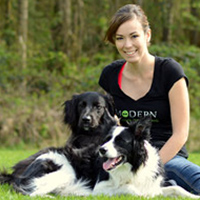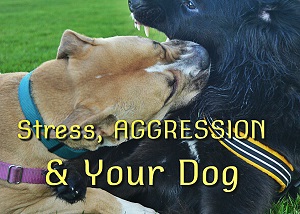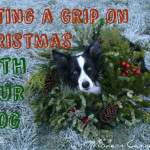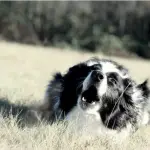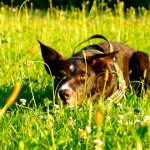Stress, Aggression, and Your Dog
Is Stress Getting to Your Furry Friend? Here's How You Can Ease Some Tension.
Stress affects everyone, including our dogs. It sucks, it doesn't feel good, and it creates negative feelings. So, if you could prevent stress towards your dog, wouldn't you?
Stressors
Stressors are little blocks that build onto one another until the dog reaches a pinnacle and "snaps" or "loses it". It's like having a bad day; one thing happens after another and eventually day after day of negativity, you lose it. You become short tempered, irritable, and cranky. Dogs succumb to this as well. But just like humans, they all have different stressors and thresholds until they lose it, so it's up to the human to identify their dog’s stressors and help them.
Common stressors for herding breeds include:
Restraints (leashes, holding), dogs and/or humans in their face, yelling, hitting, a stranger’s hand over their head, or loud, abrupt noises. These are not the only ones as each dog has their own personality and was raised vastly different, so each dog may not have any of those, but have others and vice versa.
Dogs that were not socialized or had a traumatic situation happen can have very large stressors. In my dog, Luna’s case, she was chased by two German Shepherds when she was 8.5 weeks old, rag-dolled, and stepped on. This was a traumatic event for her and her stressors after this incident were as follows:
- German Shepherds and dogs that look like GSD's
- Any dogs chasing her (within a game of chase) and getting within a foot of her rear
- Dogs rushing at her without a proper introduction
- Doggy friends jumping on top of her when they are engaged with play
Dogs that were not socialized with other dogs may have stressors as follows:
- The sight of any strange dog
- Introductions to dogs
- The sound of dogs barking
More mild stressors include:
- Strange dogs touching them or even looking towards them
- A dog friend instigating play, but mistakenly taking the behaviour as a threat.
Stress Creates Aggression
Stress causes a 'wonderful little hormone' called cortisol to enter the body, and then adrenaline pumps into the system and causes what is known as the "fight or flight" response. The fight or flight response is as obvious as it sounds: you choose to fight or run from the threat.
The problem with this is that owners don't like it when the dog chooses survival and fights, thinking it’s saving his or her own life.
The more stress that the dog succumbs to, the higher the aggressive behaviour that will be exhibited, in the early stages. Once a dog has been exposed to stress time and after time, learned aggression soon takes place, still being elicited by cortisol, but the choice of using aggressive behaviours now becomes the dog’s ideal choice. Aggression makes the threat go away incredibly fast, then the horrible, agitated, stressed-out feeling leaves the dog’s mind as well, so this is highly reinforcing for the dog.
The key with dogs that have aggressive tendencies is to AVOID stress. Stress is not good for these dogs as they will quickly turn on the “aggressive” mode, and for many dogs, this behaviour is extremely difficult to undo. Usually with the help of an experienced behaviourist or canine behaviour consultant you can re-train the dog with a flight response and then work down the stress through time.
Herding and Aggression
Ever wonder why mid-chase your dog will nip? It's adrenaline with a combination of uncertainty and fear, which will trigger stress and that nip. Don't underestimate your dog’s natural instincts to nip, but this is heightened by the stress hormone; the sheep (prey) are getting away and that causes the dog stress - herders do not want to lose that prey, so it is extremely stressful for the dog.
Biting When Herding
This happens when the dog has an abundance of adrenaline in the system and is known as “gripping” (biting and not letting go). Gripping is an abnormal herding behaviour that you don’t want to see. This will stress the sheep out (and that’s a no no with the Shepherd). You can see this behaviour when other dogs are romping and wrestling, and your dog may get a little too excited and go in for the legs or hind quarters. Often your dog is called “the referee”, because he or she will bark and nip/bite to stop dogs’ playing, but really your dog is herding them. Sometimes the instinct is too strong to be able to differentiate whether it’s a dog or sheep.
For more information on aggression, please take a look at my videos that go over aggression in more detail:
Stressors
Types of Aggression
Article By:
Kris Crestejo, CDBC
Meet Our Evangelist
